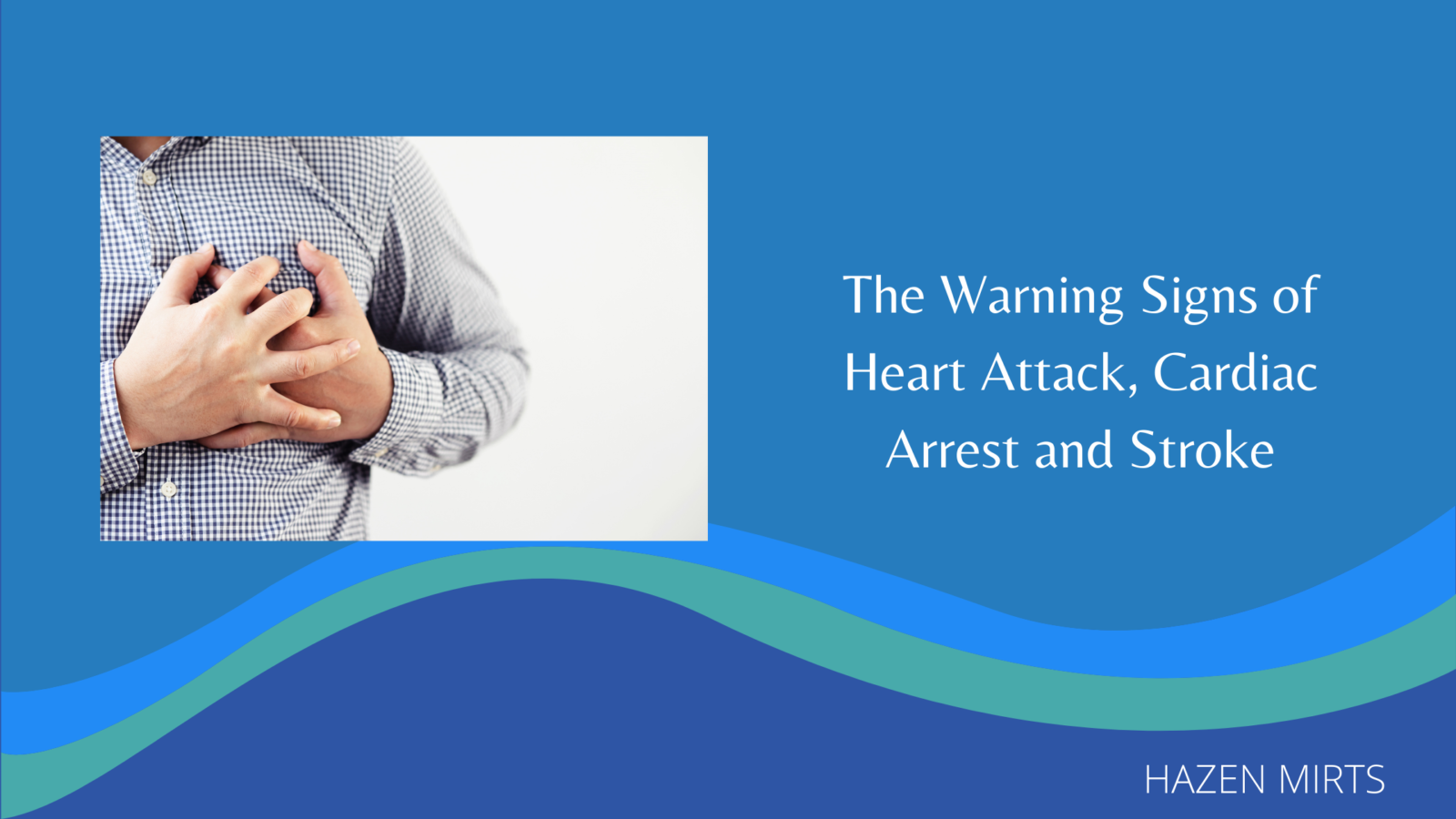Each February, the National Heart, Lung, and Blood Institute (NHLBI) celebrates American Heart Month to motivate Americans to take on healthy habits that could prevent heart diseases. It is critical to spread awareness regarding heart diseases and problems, particularly heart attacks, cardiac arrest, and strokes. The difference between these three conditions and their warning signs is presented here to raise awareness and save lives.
A heart attack occurs when one of the heart’s main arteries gets blocked, which causes the heart not to get sufficient blood flow. Heart attacks are usually caused by a buildup of plaque that leads to a blood clot that obstructs blood flow. The warning signs of a heart attack include chest discomfort, including uncomfortable feelings of squeezing, pain, pressure, or fullness in the central area of the chest. Discomfort in the upper body, such as the arms, neck, back, jaw, and stomach, is another warning sign of a heart attack. Other symptoms include shortness of breath, with or without pain in the chest, nausea, lightheadedness, and breaking out in a cold sweat.
A cardiac arrest is a serious heart condition where the heart has an abnormal rhythm or stops altogether. Heart attacks can sometimes lead to cardiac arrests, but trauma, infection, embolism, and heart rhythm problems can also cause cardiac arrests. The warning signs of a cardiac arrest include a sudden loss in responsiveness, such as no response to being tapped on the shoulder and not being able to take a normal breath when tilting the head up.
On the other hand, Strokes also deal with blood flow but are not based in the heart. There are two main types of strokes: ischemic and hemorrhagic. The former is when a blood clot blocks blood flow to a particular area of the brain. The latter is when there is bleeding in the brain due to a ruptured blood vessel. The warning signs of strokes include face drooping, arm weakness as well as speech difficulty. In the event of any of these symptoms, it is crucial to call 911 and get the individual to the hospital immediately. The sooner medical care can be received, the higher the victim’s chances of survival.
Since critical heart conditions can arise at any time, people need to know the symptoms. Knowing the signs can save your life or the life of someone you love.


